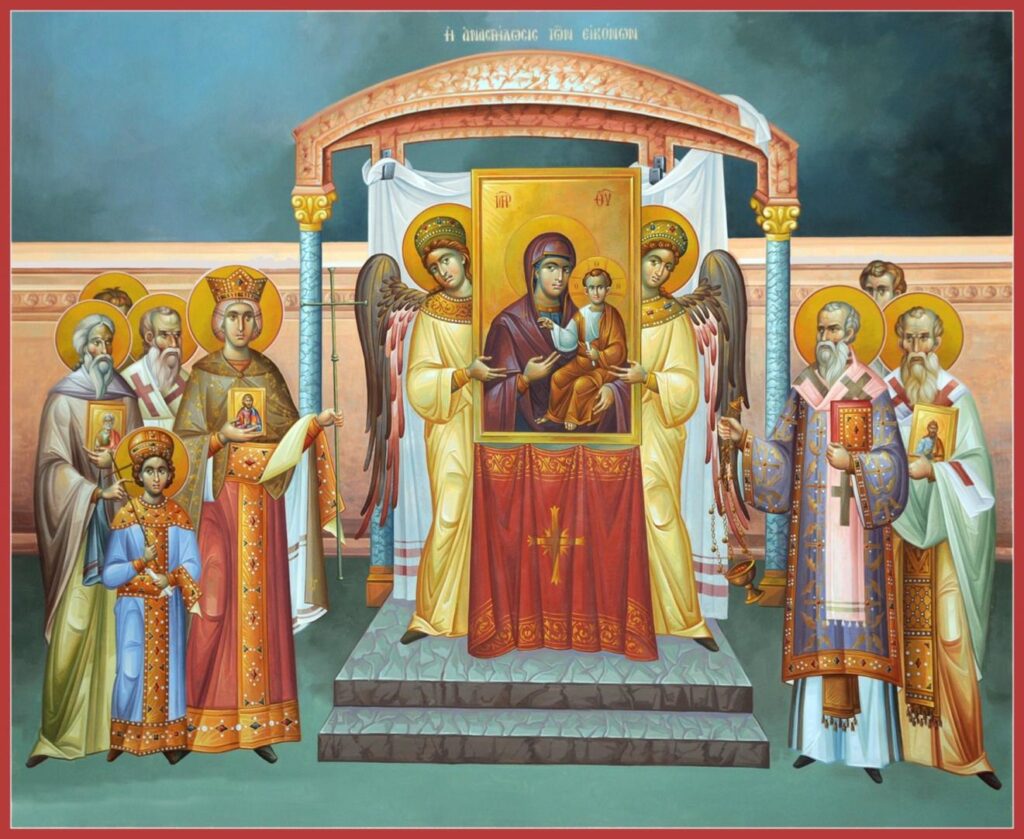In the name of the Father, and of the Son, and of the Holy Spirit, one God, Amen.
“You are wrong,” I call out to those outside the Church, “you do not have the true Christ, the true Church, the true Faith.” And in my pride and in my hubris I deny the Truth of the Gospel which is to say I deny Christ. For this is not the witness of Christ nor of the Apostles, this is a false gospel.
“At that time, Jesus decided to go to Galilee. And he found Philip and said to him, ‘Follow me.’” Christ did not argue with Philip, nor demonstrate to him the falseness of his current position, he said simply “Follow me.” And the words of his message, which enlivened Philip and caused his heart to burn within him (cf. Luke 24:32), were enough. Likewise he spoke to Nathanael without any argument, without any condemnation, but with love, “Before Philip called you, when you were under the fig tree, I saw you.”

And I look at how I speak and I start to realise that I must change, that I must place the love of God at the centre of all my words. For the Gospel is not a message of worldly eloquence, as the Apostle tells us,
And I, brethren, when I came to you, did not come with excellence of speech or of wisdom declaring to you the testimony of God. For I determined not to know anything among you except Jesus Christ and Him crucified. I was with you in weakness, in fear, and in much trembling. And my speech and my preaching were not with persuasive words of human wisdom, but in demonstration of the Spirit and of power, that your faith should not be in the wisdom of men but in the power of God.
First Corinthians 2:1–5
Let this, dear brothers and sisters in Christ, be our model. Our Faith, our Faithfulness, is not of superiority but of service and love to bring the Gospel of Christ’s defeat of all that afflicts us—of idolatry, of sin and of death—to the world: that by “speaking the truth in love” (Ephesians 4:15) we may communicate the love of God and the new life brought about through faithfulness to the Resurrection of our Lord and Saviour Jesus Christ.
Finally, brethren, farewell. Become complete. Be of good comfort, be of one mind, live in peace; and the God of love and peace will be with you. Greet one another with a holy kiss. All the saints greet you. The grace of the Lord Jesus Christ, and the love of God, and the communion of the Holy Spirit be with you all. Amen.
Second Corinthians 13:11–14
Brethren, by faith Moses, when he was grown up, refused to be called the son of Pharaoh’s daughter, choosing rather to share ill-treatment with the people of God than to enjoy the fleeting pleasures of sin. He considered abuse suffered for the Christ greater wealth than the treasures of Egypt, for he looked to the reward. And what more shall I say? For time would fail me to tell of Gideon, Barak, Samson, Jephthah, of David and Samuel and the prophets — who through faith conquered kingdoms, enforced justice, received promises, stopped the mouths of lions, quenched raging fire, escaped the edge of the sword, won strength out of weakness, became mighty in war, put foreign enemies to flight. Women received their dead by resurrection. Some were tortured, refusing to accept release, that they might rise again to a better life. Others suffered mocking and scourging, and even chains and imprisonment. They were stoned, they were sawn in two, they were killed with the sword; they went about in skins of sheep and goats, destitute, afflicted, ill-treated — of whom the world was not worthy — wandering over deserts and mountains, and in dens and caves of the earth. And all these, though well attested by their faith, did not receive what was promised, since God had foreseen something better for us, that apart from us they should not be made perfect.
— Hebrews 11:24–26, 32–40
At that time, Jesus decided to go to Galilee. And he found Philip and said to him, “Follow me.” Now Philip was from Bethsaida, the city of Andrew and Peter. Philip found Nathanael, and he said to him, “We have found him of whom Moses in the law and also the prophets wrote, Jesus of Nazareth, the son of Joseph.” Nathanael said to him, “Can anything good come out of Nazareth?” Philip said to him, “Come and see.” Jesus saw Nathanael coming to him, and said of him, “Behold, an Israelite indeed, in whom is no guile!” Nathanael said to him, “How do you know me?” Jesus answered him, “Before Philip called you, when you were under the fig tree, I saw you.” Nathanael answered him, “Rabbi, you are the Son of God! You are the King of Israel!” Jesus answered him, “Because I said to you, I saw you under the fig tree, do you believe? You shall see greater things than these.” And he said to him, “Truly, truly, I say to you, you will see heaven opened, and the angels of God ascending and descending upon the Son of man.”
— John 1:43–51
